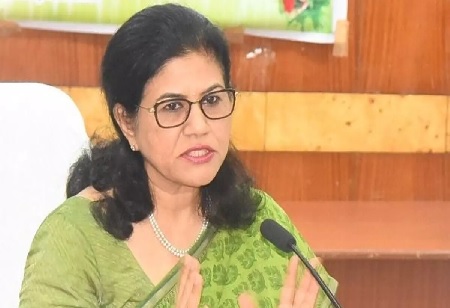India aims to rise up to the top 25 in the Logistics Performance Index
By Consultants Review Team
 According to Sumita Dawra, Special Secretary, Logistics, Department for Promotion of Industry and Internal Trade (DPIIT), India hopes to move up to the top 25 in the Logistics Performance Index (LPI) by 2030. India was placed 38th out of 139 nations in the World Bank's Logistics Performance Index in April, up from India's previous ranking of 44th in 2018. By 2030, the nation hopes to rank among the top 25 nations.
According to Sumita Dawra, Special Secretary, Logistics, Department for Promotion of Industry and Internal Trade (DPIIT), India hopes to move up to the top 25 in the Logistics Performance Index (LPI) by 2030. India was placed 38th out of 139 nations in the World Bank's Logistics Performance Index in April, up from India's previous ranking of 44th in 2018. By 2030, the nation hopes to rank among the top 25 nations.
The DPIIT is also in talks with World Bank as well as International Monetary Fund to change the methodology while calculating the ranking under LPI. “At the moment, the world bank’s LPI is based on a very subjective analysis. We are trying to bring in objectivity by impressing upon world bank how we are using technology to improve logistics in the country by way of Unified Logistics Integration Platform (ULIP),” Dawra added. She was speaking at a press briefing in New Delhi.
Dawra said that DPIIT officials have been continuously engaging with officials of the World Bank to draw their attention to the need for greater emphasis on objective-based methodology for LPI scoring. The World Bank uses six parameters to measure performance of countries that include customs, infrastructure, international shipments, logistics competence, tracking and tracing, and timelines. ”We feel this is a very narrow way of ranking India on important global indices and there is a lot of work going on and that should be reflected in the calculations. We have analyzed the parameters and the way it is done. We would like the World Bank to include our interventions and reforms which are contributing to improve logistics in India,” Dawra said during a press briefing.
She also said that the report on a framework to assess the logistics cost in the country is ready and it would be released by the end of the month as it would help get a realistic estimate of the cost. As per government’s estimates, India’s logistics cost stands at 8-14% of the country’s GDP (gross domestic product). ”Now we have a baseline estimate and from next year we will do a survey based thing to calculate the cost,” she said, adding that the National Council of Applied Economic Research (NCAER) and ADB have been engaged in the exercise.
Dawra added that the service improvement group constituted in March to resolve logistics related issues has so far assessed 80 issues from different departments including revenue, railways, and road. Of the 80 issues examined, 34 have been resolved. There are 21 issues pertaining to the CBIC (Central Board of Indirect Taxes and Customs) such as matters pertaining to some ports, GST and ICEGATE (Indian Customs EDI Gateway). As many as 106 firms have signed non-disclosure agreements with the government to access data from the ULIP, launched on September 17 last year as part of the national logistics policy.







